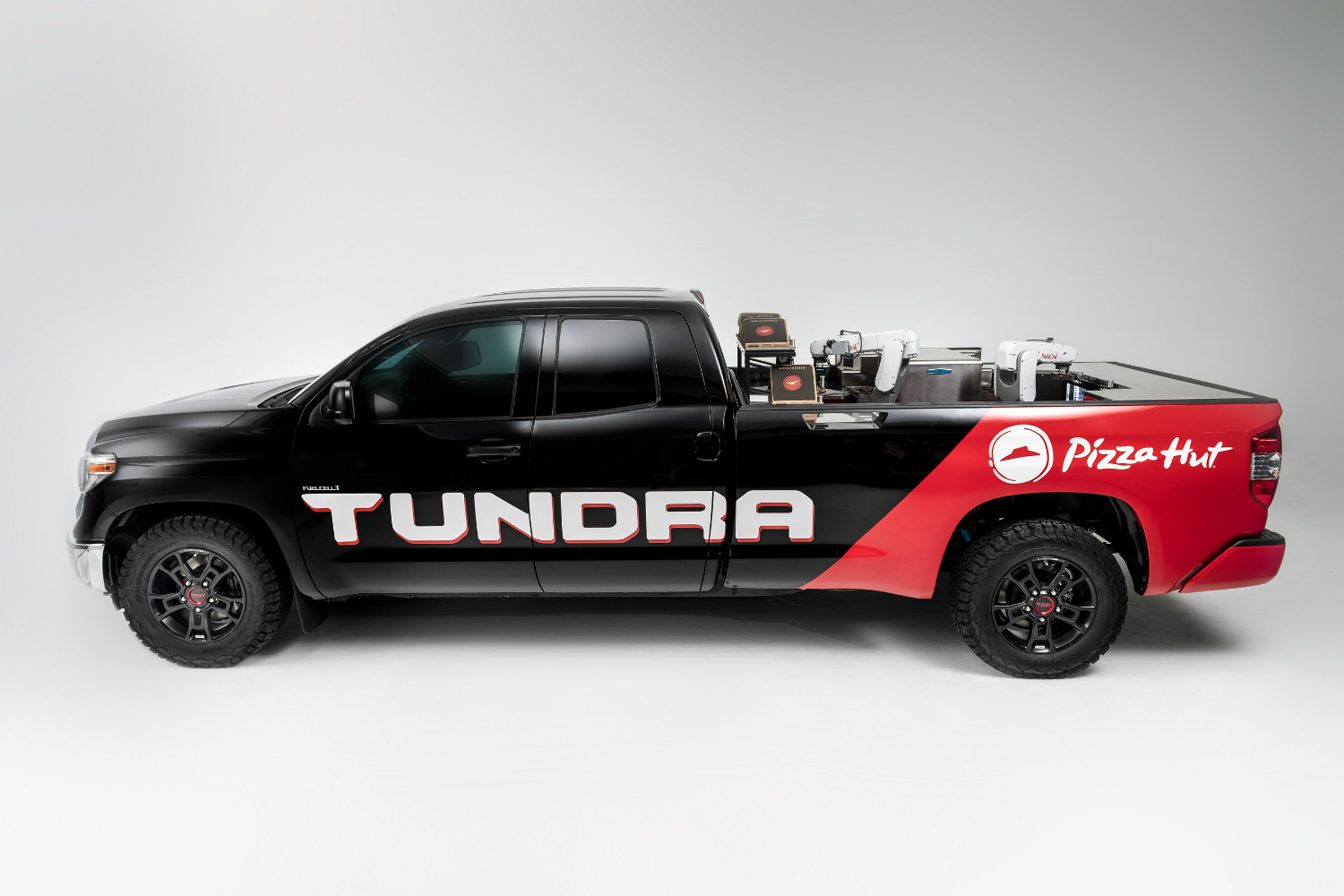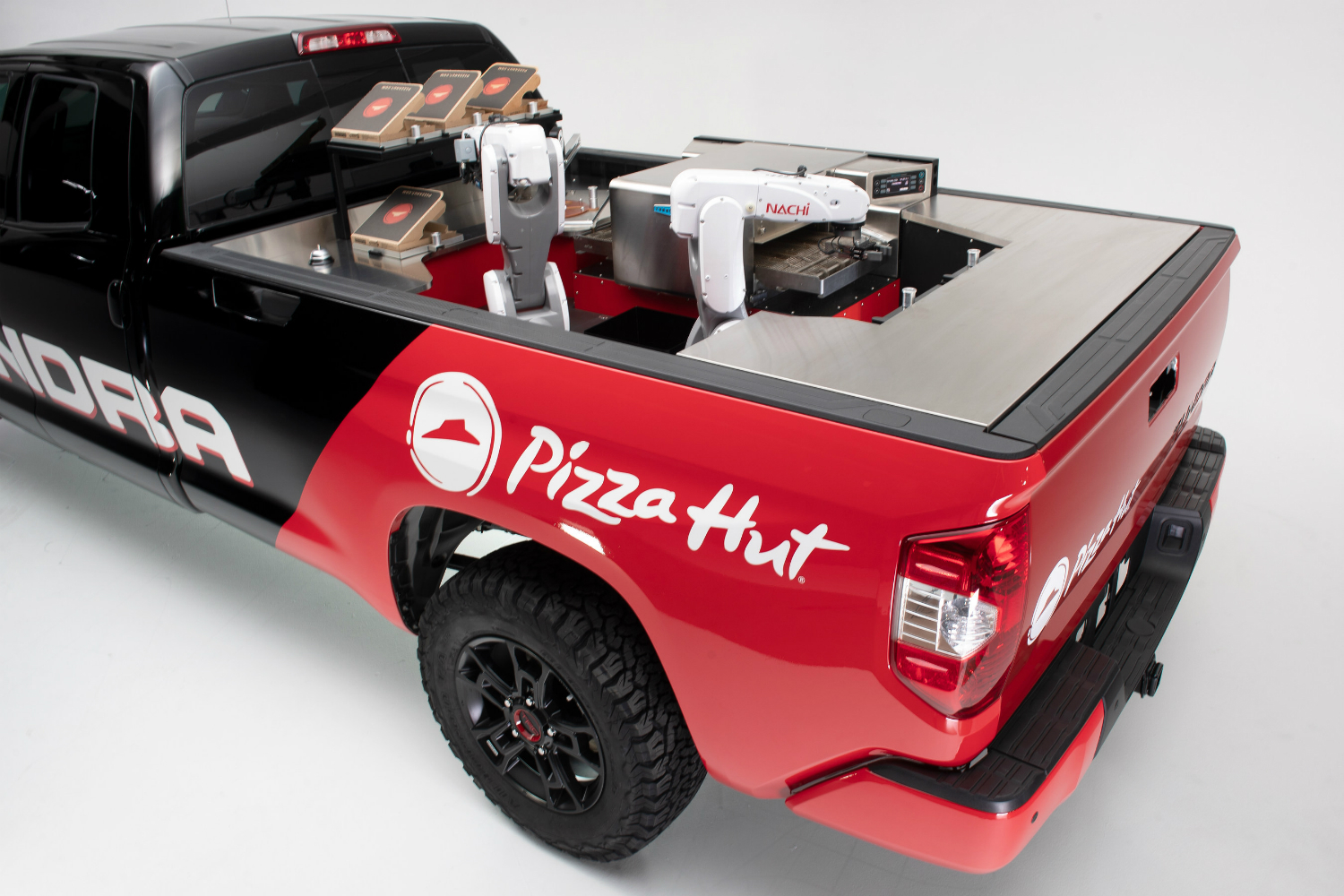Pizza Hut and Toyota are looking to the future with the Tundra Pie Pro pizza factory on wheels. The truck’s bed, known as “The Kitchen,” has everything necessary to turn out freshly cooked pizzas on the spot.
On display at the 2018 Specialty Equipment Market Association (SEMA) Show in Las Vegas this week, both the truck and the pizza oven run on a hydrogen fuel-cell electric powertrain.
An automaker experimenting with alternative fuel sources won’t raise eyebrows, but a pizza company? Pizza Hut wants to expand same store delivery areas without compromising final product quality. Customer satisfaction is the top goal, the company says, which means the pizza needs to be delivered on time and definitely must taste good.
“Nothing tastes better than a fresh Pizza Hut pizza straight out of the oven,” Pizza Hutt’s Chief Brand Officer Marianne Radley said in a release. “The Tundra Pie Pro brings to life our passion for innovation not just on our menu but in digital and delivery in order to provide the best possible customer experience.”
The customized Toyota Tundra with the converted fuel-cell power plant holds a refrigerator, two computer-guided robotic arms, and a portable, electric, high-speed ventless conveyor oven. The concept truck is a reassembled Tundra SR5. The rolling pie oven is powered an adapted hydrogen fuel-cell unit from the Toyota Mirai.
When you place an order for a pizza, the rolling kitchen gets into action. A robotic arm extracts the specified pizza from the refrigerator, puts the pie on the conveyor, and then closes the door as the pizza travels through the oven.
When the cooked pizza exits the oven, the second robotic arm picks it the pie, puts it on a cutting board, cuts it into six pieces, puts it in a box, and hands it to the customer, who we assume is standing next to the truck, jaw dropped.
According to the company, the Pie Pro kitchen creates and bakes a pizza in six to seven minutes.
Don’t count on a Pizza Hut-branded Tundra Pie Pro rolling down your street any time soon, but the collaboration for the SEMA Show isn’t just a head-turner.
“We are constantly focused on evolving our processes and systems through improvements and innovations that allow our team members and drivers to better serve our customers,” Pizza Hutt’s Chief U.S. Customer and Operations Officer Nicolas Burquier said in a statement. “The Tundra Per Pro and our work with Toyota are only helping accelerate our commitment to transform both the team member and the customer experience at Pizza Hut.”






